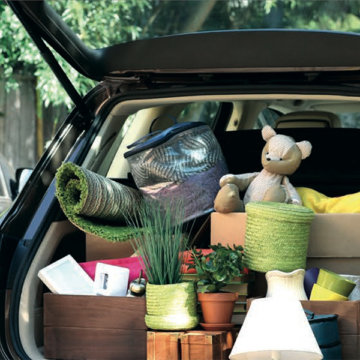- About
- Topics
- Story
- In-Depth
- Picks
- Opinion
- News
- Donate
- Signup for our newsletterOur Editors' Best Picks.Send
Read, Debate: Engage.
Living in Europe – what is it really? That’s a question the EU statistic nerds of Eurostat try to display in their 2015 report on “People in the EU: who are we and how do we live?” To find the answers they analysed everything – from household sizes, migration until even the availability of indoor plumbing – and they found some interesting statistical facts. Facts that may show, why some European countries are more scared about the millions of refugees knocking on their doors than others. Or for some, this report may even bring light into some perceived discomfort about being “overrun”. As the figures show, your neighbour is most likely from another EU member state. As European politician are going to seal the continent off from people fleeing from certain regions, Europeans themselves benefit from the free movement of persons as one of the fundamental freedoms of the internal market, enshrined in law (Article 45 of the Treaty on the Functioning of the European Union and subsequent secondary legislation). As such, citizens of EU Member States, together with their immediate family - spouses or registered partners are free to go, live and work wherever they want and for whatever reasons.
According to the report, approximately half of all foreign-born people living in the EU Member States were from elsewhere in Europe. More than 10 % of those born in Cyprus, Ireland, Luxembourg, Poland and Romania lived abroad in another EU Member State and more than one in five residents living in an EU Member State but born in another Member State originated from Poland. There are 2.7 million Polish-born residents living in Germany. It becomes very interesting to observe the foreign policy and the behaviour of the new Polish government in terms of the refugee policy in its own country!
By contrast, more than one-third (36.9%) of foreign-born residents - some 18.8 million persons- were born in the other EU Member States, while 7.4 million (14.6 %) were born in other European countries outside of the EU. Residents in the EU Member States who were born in Asia made up 20.8% of the foreign- born total while EU residents born in Africa made up 16.9% of the total and residents born in the Caribbean, Central and South America made up 8.7%. There were relatively small shares for those born in North America (1.7%) and Oceania (0.6%). In absolute terms, the largest numbers of foreign-born people living in the EU Member States on 1 January 2014 were found in Germany (9.8 million), a country with approximately 80 million inhabitants. The Moroccan community is the largest foreign-born community in the EU. And as the report says: The second and third largest foreign-born communities resident in the EU-28 were composed of people born in Turkey and Russia (2.1 million and 1.8 million persons), while there were in excess of one million residents living in the EU originating from each of Algeria, Ukraine and India. It is interesting to note that there were more Chinese-born residents living in the EU-28 (827 thousand) than American-born residents (584 thousand).
A lot of figures, indeed! But what they show is, humans have always moved across the planet, from the beginnings of mankind, through tribal and religious migrations, empire building, colonialism and slavery, to more modern forms (see also fairplanet’s dossier ESCAPE). The official statistics agency of Eurostat finds that Europe is a diverse place – always has been and it better will be. Because, the ever-changing lifestyles and population trends of good old Europe show, that the 506.8 million inhabitants in the EU-28 as of 1 January 2014 are ageing, rapidly. Aside from Japan, the EU is the world’s most rapidly ageing region. Especially, in 11 EU Member States - ahead of everyone: Germany, recording 1.76 million fewer inhabitants between 2004 and 2013, followed by Romania with1.57 million fewer inhabitants.
Europop2013, the latest population projections released by Eurostat, forecast the largest reductions in population numbers in eastern and southern EU Member States. Seclusion – that history has shown, is definitely no solution.
